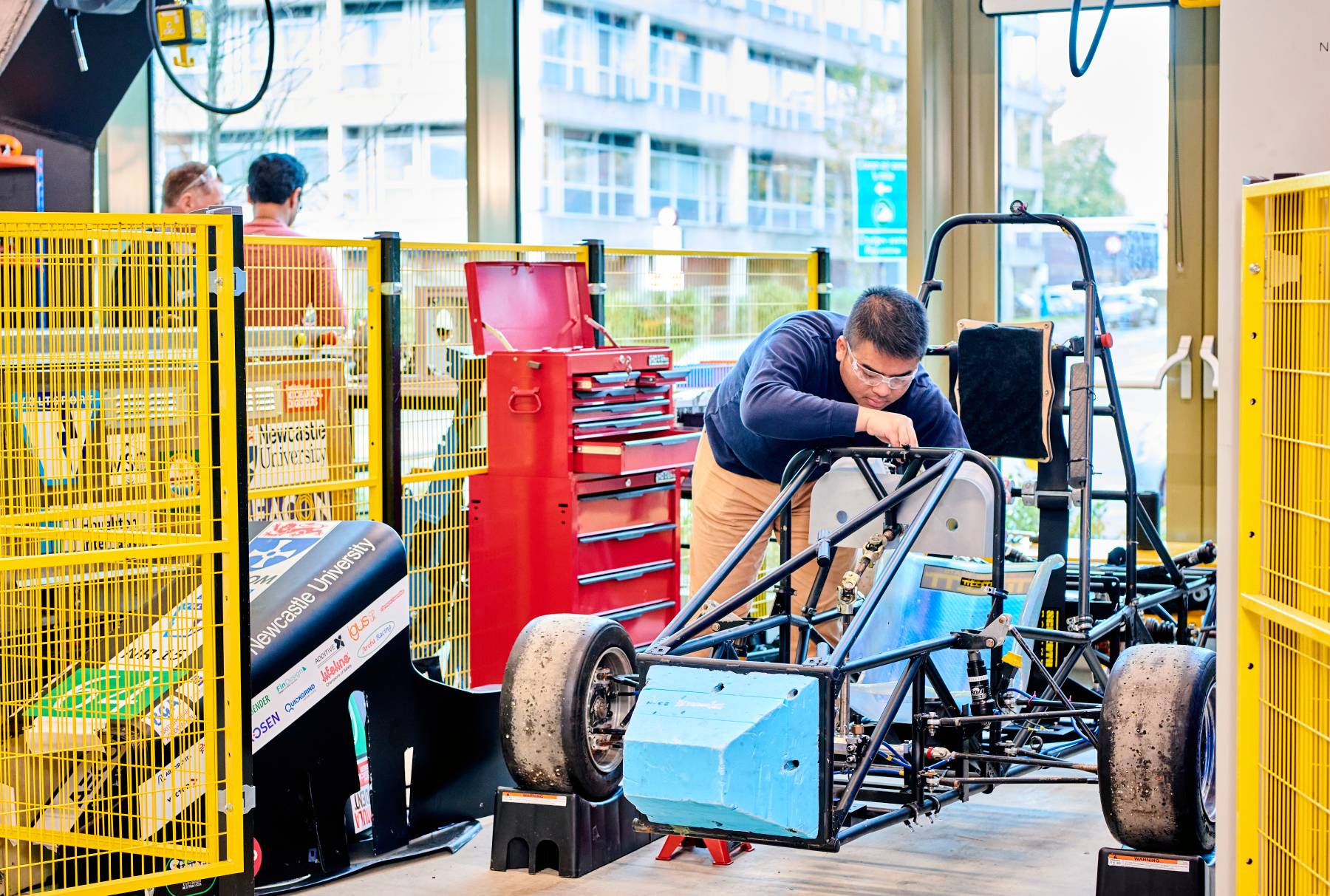CME8418
Environmental Technology for Advanced Conversion of Emissions and Effluents
- Offered for Year: 2025/26
- Module Leader(s): Dr Sharon Velasquez Orta
- Owning School: School of Engineering
- Teaching Location: Newcastle City Campus
Semesters
Your programme is made up of credits, the total differs on programme to programme.
| Semester 1 Credit Value: | 20 |
| ECTS Credits: | 10.0 |
Aims
- To identify the suitability of effluents for biological or physicochemical treatment.
- To introduce conventional technologies utilised for the treatment of gaseous emissions, wastewater, and control of emissions.
- To revise latest Net Zero technologies for the conversion of greenhouse gases, wastewater into renewable energy, chemicals and materials as part of a circular bioeconomy.
- To understand analytical techniques used for environmental monitoring.
- Introduce key concepts for the environmental management of industrial effluents, pollution control, legislation, and permitting.
Outline Of Syllabus
Core concepts:
- Treatment based on effluent properties
Conventional liquid effluent treatment technologies:
- Preliminary and primary treatment
- Aerobic waste treatment
- Anaerobic waste treatment
- Tertiary treatment
Gas effluents treatment technologies:
- Scrubbing, adsorption and filtration
- Catalytic converters
Advanced dual treatment and conversion technologies:
- CO2 capture with high temperature membranes
- Bioelectrochemical systems: microbial fuel cells, bioelectrosynthesis, microbial electrolysis cells
- Algal technology: CO2 to oxygen processes for waste conversion
- Yeast technology: bioethanol production from wastes
- Bioleaching technology for metal recovery
Environmental Management and pollution control:
- Drivers and controls for treatment technologies
- Emissions monitoring and pollution control strategies
- Environmental permitting
- Circularity models applied to effluent materials
Learning Outcomes
Intended Knowledge Outcomes
At the end of this module students will be expected to be able to:
- Evaluate the use of conventional technologies for the remediation of waste effluents and new technology trends to develop circularity models for waste flows
- Critically assess biological, chemical or physical technologies to be used for a particular solid, liquid, or gaseous waste and its opportunities for circularity
- Understand online and offline methods used for monitoring emissions and pollution control
- Synthesize appropriate management tools for waste treatment, valorisation and control
Intended Skill Outcomes
Students will be able to:
- Devise strategies and best practices for monitoring of emissions and pollution control
- Design unit operations for waste treatment following engineering guidelines and standards
- Apply management tools for the long-term running of a waste recovery plant
Teaching Methods
Teaching Activities
| Category | Activity | Number | Length | Student Hours | Comment |
|---|---|---|---|---|---|
| Scheduled Learning And Teaching Activities | Lecture | 10 | 2:00 | 20:00 | Lectures |
| Structured Guided Learning | Academic skills activities | 1 | 10:00 | 10:00 | Preparation of risk assessment forms and recording tables |
| Guided Independent Study | Directed research and reading | 1 | 90:00 | 90:00 | Reviewing lecture notes and course materials |
| Guided Independent Study | Assessment preparation anf completion | 1 | 60:00 | 60:00 | Preparation and completion of assessments |
| Scheduled Learning And Teaching Activities | Fieldwork | 1 | 20:00 | 20:00 |
On-site industrial visits to waste treatment facilities |
| Total | 200:00 |
Teaching Rationale And Relationship
Students will learn fundamental and advanced concepts on waste treatment and valorisation through lectures, visits and a practical. With this, students will be exposed to an array of learning pathways that require different levels of interaction.
Assessment Methods
The format of resits will be determined by the Board of Examiners.
Zero Weighted Pass/Fail Assessment
| Description | When Set | Comment |
|---|---|---|
| Written exercise 1 | M | Pass/Fail individual participation in discussion boards on Canvas |
Other Assessment
| Description | Semester | When Set | Percentage | Comment |
|---|---|---|---|---|
| Oral Examination 1 | 1 | M | 50 | 15 min group oral examination on the investigation and design of a specified unit operation for waste treatment |
| Written exercise 1 | 1 | M | 50 | 5 pages individual assignment on a specified unit operation for waste treatment to be submitted in their portfolio |
Assessment Rationale And Relationship
The individual assignment allows students to demonstrate their learning in on a specified unit operation for waste treatment. Students should be able to orally defend the investigation and design of a previously specified unit operation therefore demonstrating achievement of learning and skills outcomes beyond the submission of their written work.
Engagement with the module material will be assessed on a pass/fail basis through participation in discussion boards on Canvas.
Timetable
- Timetable Website: www.ncl.ac.uk/timetable/
